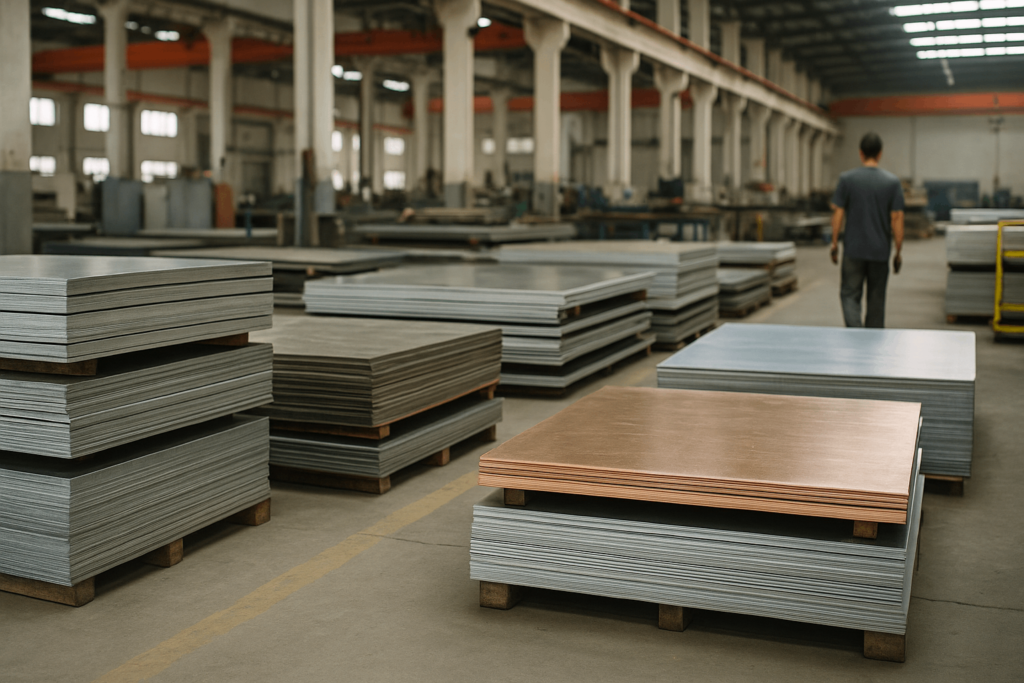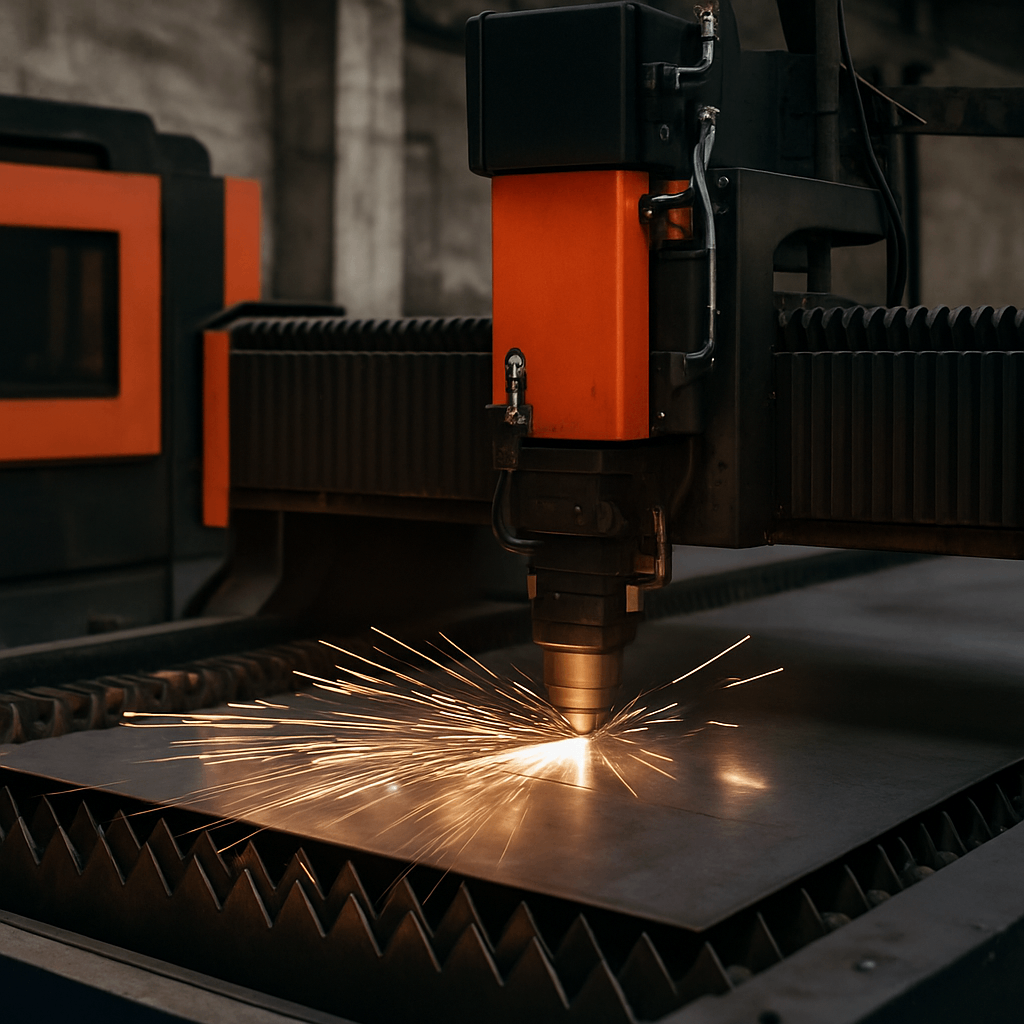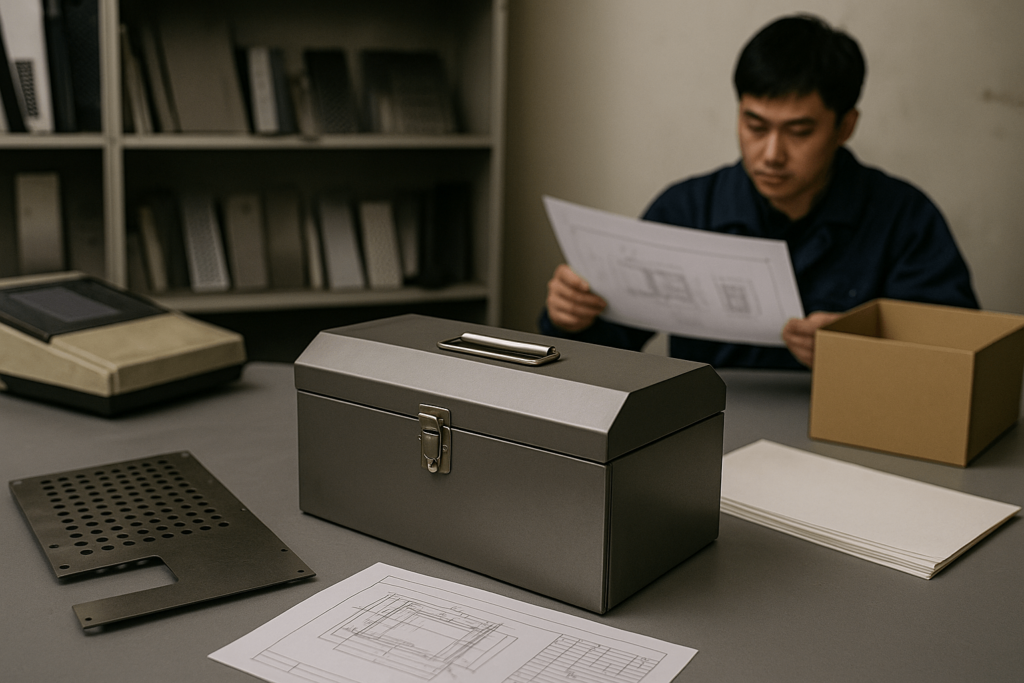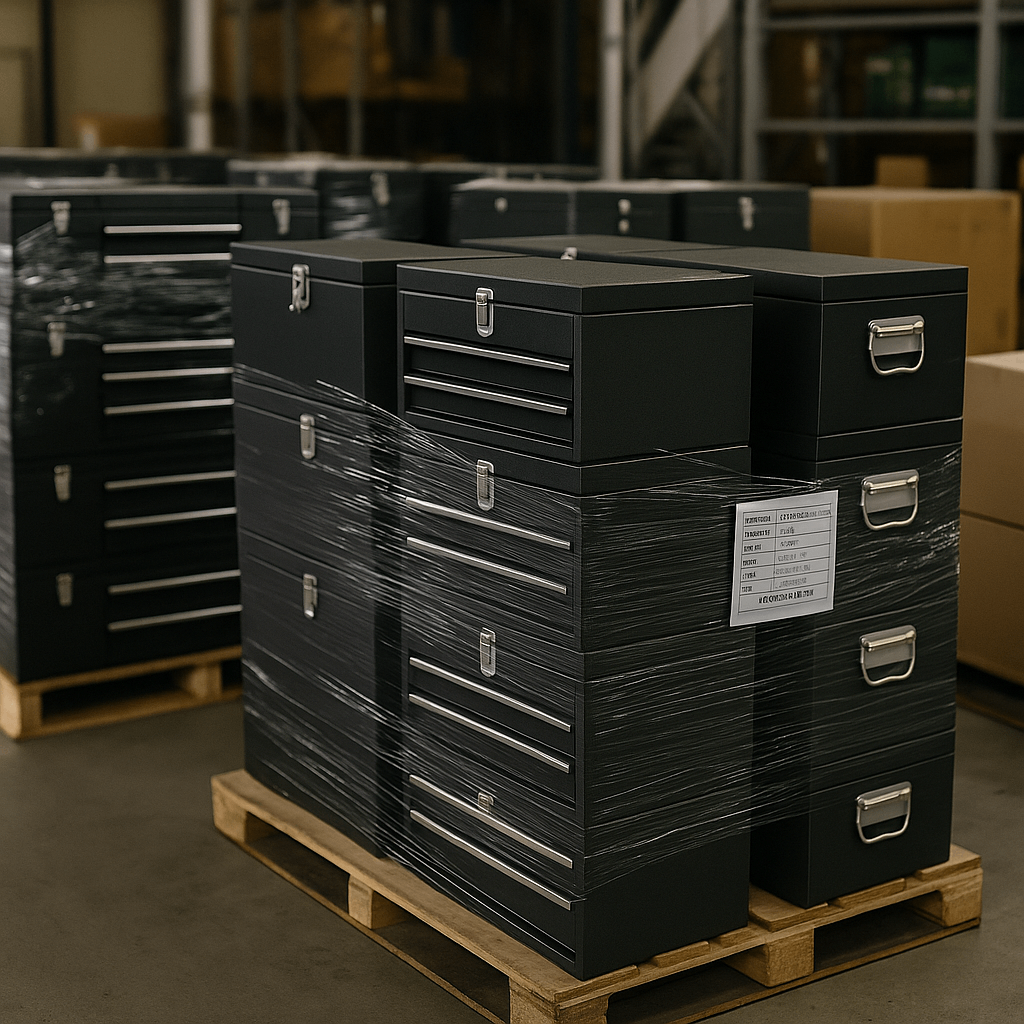In international procurement, tool boxes are no longer simple accessories. They play a role in product differentiation, branding, and even logistics efficiency. For wholesale buyers managing large-scale sourcing for industrial, automotive, or construction applications, the priority is not just design—but function, consistency, and value per unit.
Generic tool boxes may meet basic storage needs.
But they often fall short in long-term durability, customization potential, and regulatory compliance. This gap pushes procurement teams to seek out manufacturing partners who understand the operational and commercial weight of these products.
That’s why global B2B buyers increasingly prioritize custom sheet metal tool boxes that align with specific workflows, branding needs, and regional performance standards.
According to a 2023 Statista report, 72% of tool and hardware distributors in Europe prioritize suppliers that offer customizable packaging and design to support their private label strategies. This underscores a growing demand for tailored solutions that go beyond basic utility and tap into strategic procurement outcomes.
This article explores how a strategic approach to tool box sourcing can support scale, branding, logistics efficiency, and profitability across regions.
Why Functionality Comes First in High-Volume Tool Box Sourcing
Functionality is the foundation of value in B2B procurement. For global buyers managing large-scale distribution or equipment integration, tool boxes must be designed with end-use logistics, ergonomics, and durability in mind.
For example, automotive chains may demand quick-access latches, foam inserts, or tamper-resistant locks. Meanwhile, telecom deployments often require lightweight builds, stackable form factors, and water-resistant seals—making them ideal for custom toolbox suppliers for telecom field teams.
In the construction sector, buyers sourcing custom metal tool boxes for job sites prioritize ruggedness, reinforced steel corners, and UV-stable coatings to withstand extreme exposure. These details directly impact lifecycle value and compliance.
Procurement teams translate these needs into requirements for cost-per-unit optimization, ease of handling, and regional compliance—all of which are driven by functionality.
Matching Material and Design to Buyer Priorities
Materials and coatings influence cost, durability, weight, and brand perception—key metrics for procurement decisions. The right material selection can reduce total cost of ownership while enhancing resale or end-user experience.
| Material | Benefits | Wholesale Use Cases |
|---|---|---|
| Stainless Steel 304/316 | Corrosion-proof, hygienic | Healthcare kits, marine-grade storage |
| Galvanized Steel | Rust-tolerant, cost-effective | Indoor lockers, construction resale |
| Aluminum | Lightweight, portable | Field kits, telecom and utilities |
| Powder-Coated Mild Steel | Economical, durable | Heavy-duty storage, industrial resale |
Surface finishes like powder coating or zinc plating impact both aesthetics and protection. Buyers sourcing heavy-duty tool boxes for resellers may prioritize matte coatings that appeal to retail environments, while logistics-centered buyers often need abrasion-resistant stackable units.
Tailoring the right mix of material + finish helps optimize shelf appeal, freight density, and longevity.

Production and Fulfillment That Scales with Your Business
Consistency and repeatability are key to scalable sourcing. For custom metal tool boxes ordered in batches of thousands, procurement professionals need manufacturers who can deliver predictable output and reliable timelines.
Key pillars include:
DFM Support: Efficient design reduces cost and improves throughput.
CNC Precision: Ensures tolerances and performance repeatability.
ISO + RoHS Compliance: Meets industry and regulatory standards.
SKU-Ready Fulfillment: Packaging, labeling, and BOM alignment.
Flexible Capacity: Scalable batch sizes across product lifecycles.
One bulk sheet metal tool box manufacturer implemented a dual-line setup to reduce cycle time by 18% for a high-mix order of 3,000 units—proving the business value of a scalable backend.
McKinsey’s 2023 Global Manufacturing Outlook noted that 64% of procurement leaders now rank “delivery reliability” as a key supplier selection factor, reinforcing the importance of aligned production systems.

Streamlined OEM/ODM Services Built for Wholesale Buyers
Procurement leaders are increasingly leveraging OEM/ODM partnerships to reduce internal complexity and accelerate product launch cycles.
OEM (Original Equipment Manufacturing): Ideal when buyers provide final specifications and brand standards.
ODM (Original Design Manufacturing): Useful when product development or market testing is needed.
This flexible engagement allows buyers to scale new SKUs quickly—whether for expanding an existing private label line or entering new B2B sectors.
A European distributor recently commissioned 1,000 stackable units with barcode-encoded SKUs, anti-static lining, and custom packaging. The partner handled prototyping, regulatory labeling, and ready-for-retail assembly—demonstrating the business logic behind OEM sheet metal boxes for field services and maintenance kits.
This type of partnership also supports growing needs for private label tool boxes for hardware distributors—where branded packaging and regional labeling must be integrated without increasing procurement overhead.

Case Snapshot: Reducing Cost and Lead Time at Scale
A U.S.-based distributor faced a margin squeeze on their 2,000-unit monthly tool box SKU. Requirements included powder-coated mild steel, corrosion resistance, and impact-tested stacking. Delivery needed to align with backhaul shipping slots.
The supplier re-engineered the design to reduce raw material weight by 12%, optimized the latch placement for assembly speed, and pre-palletized shipments by load zone. This reduced unit cost by 19% and improved load efficiency by 22%.
The final outcome helped position the buyer as an industrial metal toolbox wholesaler with higher margin flexibility and fewer fulfillment risks.
What Smart Procurement Looks Like in Tool Box Sourcing
Smart sourcing isn’t just about price—it’s about aligning the right product with strategic business goals. For tool boxes, that means balancing functional specs with inventory flow, regional regulations, and branding targets.
Sophisticated procurement teams work with suppliers to engineer not just products—but fulfillment systems. By integrating bulk manufacturing capability with design support and flexible labeling, buyers unlock faster turnaround, SKU clarity, and market responsiveness.
Whether you’re consolidating vendors, expanding tool categories, or launching a new brand division, choosing a custom storage solution for maintenance kits, telecom deployments, or job site applications gives your program the agility to grow without friction.
Conclusion: Built for B2B Buyers Who Need More Than a Box
A custom tool box isn’t just hardware—it’s a procurement multiplier. It contributes to operational flow, end-user trust, and market readiness.
With the right supplier, wholesale buyers gain speed, flexibility, and confidence in each production run. The result is a high-performance product that supports scale, profitability, and brand strength.
If you’re seeking more than a commodity—connect with a partner who builds sourcing into your strategy.


